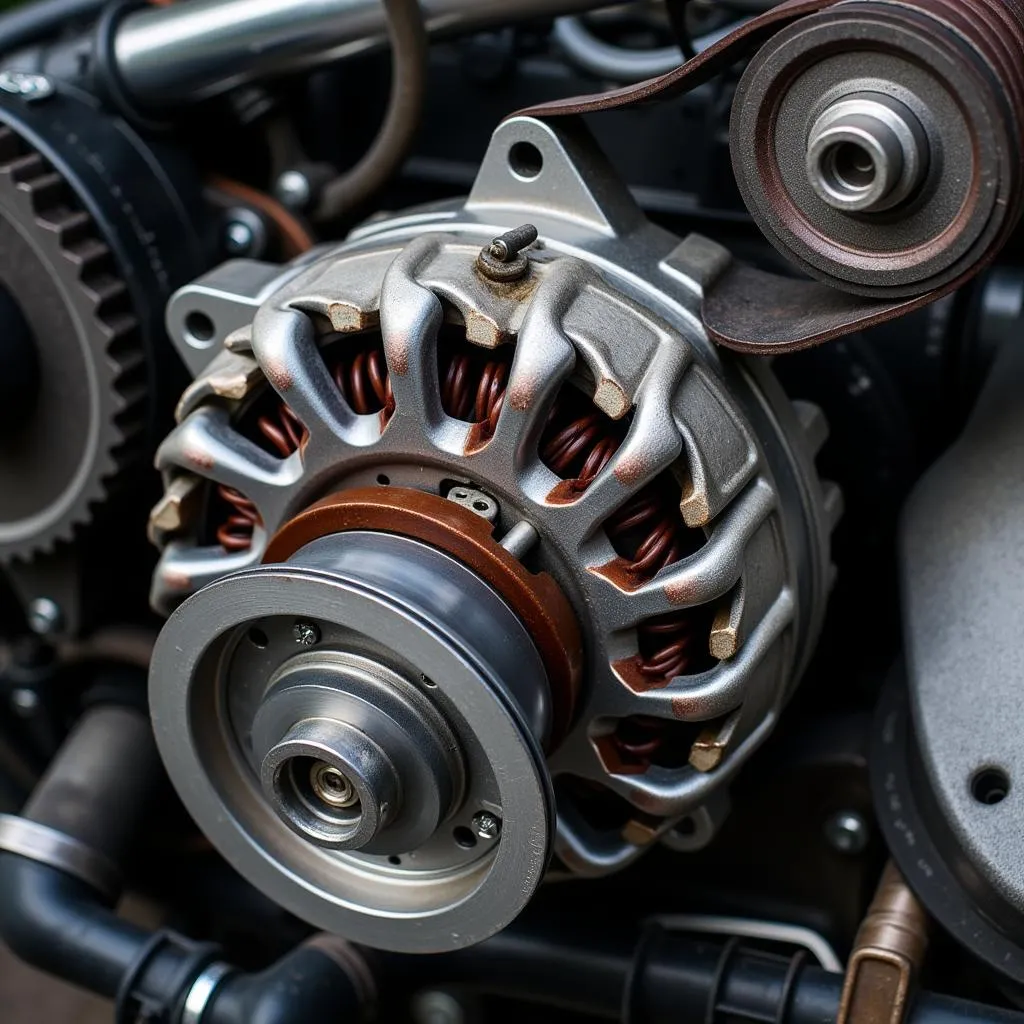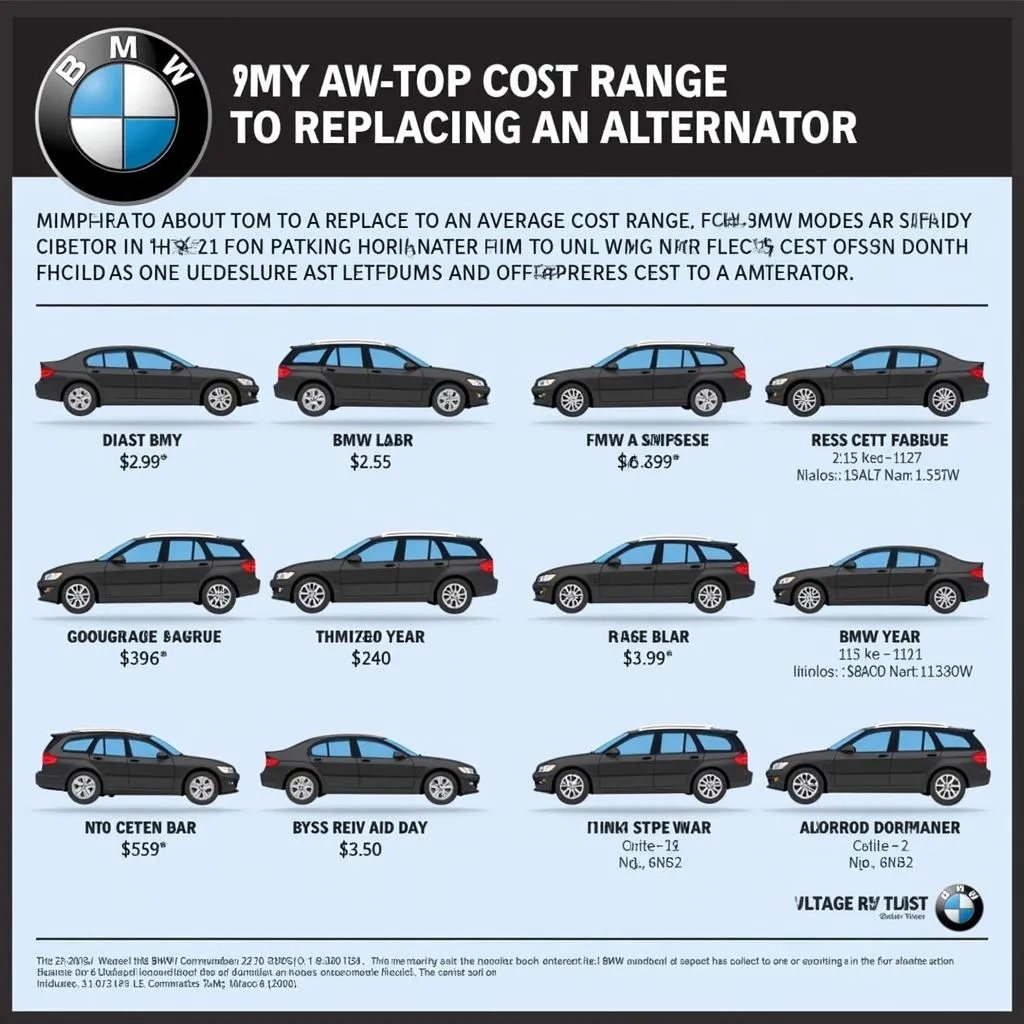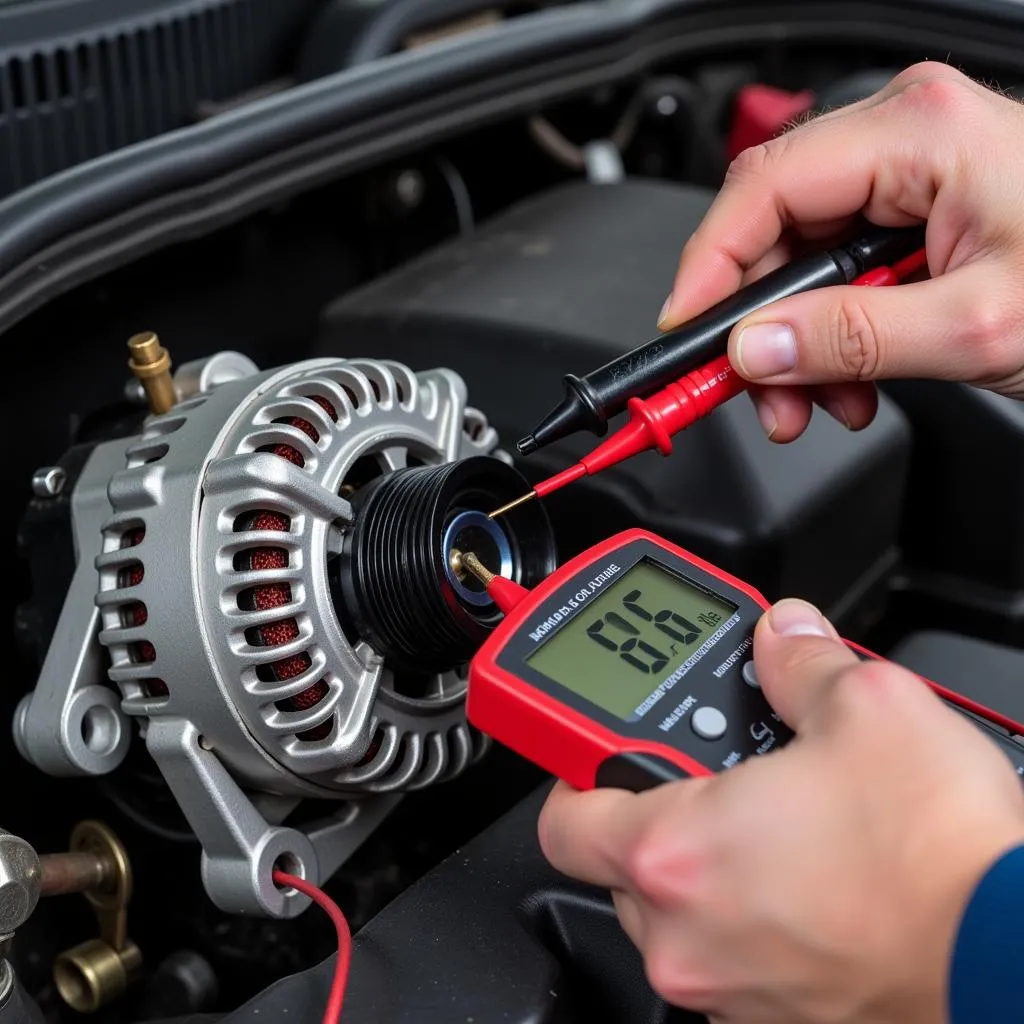The Ultimate Guide to Alternators for BMW
Your BMW is a finely tuned machine that relies on a complex network of electrical components working in harmony. One of the most crucial parts of this system is the alternator. This unassuming device provides the electrical power that keeps your engine running, your battery charged, and your lights shining bright. In this comprehensive guide, we’ll delve into everything you need to know about alternators for BMWs, from their function and symptoms of failure to replacement costs and expert tips for maintenance.
What Does an Alternator Do in a BMW?
The alternator is the heart of your BMW’s electrical system. Its primary function is to convert mechanical energy from the engine into electrical energy. This electrical energy is then used to power all the electrical components in your vehicle, including the lights, radio, power windows, and most importantly, the ignition system. The alternator also charges the battery, ensuring there’s always enough power to start your car.
 BMW Alternator connected to engine
BMW Alternator connected to engine
Common Symptoms of a Failing Alternator in a BMW
A failing alternator can lead to a variety of problems, ranging from minor inconveniences to major breakdowns. It’s crucial to recognize the warning signs early on to prevent further damage and potential safety hazards. Here are some common symptoms of a failing alternator in a BMW:
- Dimming or flickering lights: One of the first signs of alternator trouble is dimming headlights, especially when idling or using other electrical accessories.
- Warning light on the dashboard: The battery or charging system warning light may illuminate, indicating a problem with the alternator.
- Dead battery: A failing alternator won’t charge the battery properly, leading to a dead battery and starting issues.
- Strange noises: Whining or growling noises coming from the alternator belt or the alternator itself can indicate a failing bearing or other mechanical problems.
- Electrical issues: As the alternator struggles to provide enough power, you may experience issues with electrical components like the radio, power windows, or even the engine control unit.
How Much Does it Cost to Replace a BMW Alternator?
The cost of replacing a BMW alternator can vary depending on the model, year, and the specific type of alternator required. Generally, you can expect to pay between $500 and $1,500 for a new alternator, including parts and labor.
Factors that can influence the cost include:
- BMW Model: Different BMW models have different alternator configurations and complexities, which can affect the price.
- Labor Costs: Labor costs can vary depending on the location and the mechanic’s hourly rate.
- Type of Alternator: There are different types of alternators available, such as standard alternators and high-output alternators. High-output alternators are more expensive but offer increased charging capacity for vehicles with demanding electrical systems.
 BMW Alternator Replacement Cost
BMW Alternator Replacement Cost
“It’s important to note that delaying alternator replacement can lead to more expensive repairs down the road. A failing alternator can damage the battery, starter, and other electrical components,” says John Smith, a master mechanic specializing in BMW vehicles.
How Long Does a BMW Alternator Last?
The lifespan of a BMW alternator can vary depending on several factors, including driving conditions, maintenance, and the quality of the alternator itself. On average, a BMW alternator can last between 80,000 and 150,000 miles. However, it’s not uncommon for alternators to fail sooner or last longer.
Tips for Extending the Life of Your BMW Alternator
While alternator failure is sometimes unavoidable, there are steps you can take to extend the life of your BMW’s alternator and prevent premature wear and tear.
- Regular Inspections: Have your alternator inspected by a qualified mechanic during routine maintenance checks. They can identify potential issues early on.
- Keep the Battery Healthy: A healthy battery reduces the strain on the alternator. Make sure your battery is properly maintained and replaced if necessary.
- Avoid Excessive Electrical Loads: Running multiple high-power accessories like the stereo, headlights, and air conditioning simultaneously can put a strain on the alternator.
- Quality Parts: When it comes time to replace your alternator, opt for high-quality parts from reputable brands.
Can I Drive My BMW with a Bad Alternator?
While it’s technically possible to drive a short distance with a bad alternator, it’s not recommended. Driving with a failing alternator can damage the battery and other electrical components, leading to a complete breakdown and more expensive repairs. If you suspect your alternator is failing, it’s best to have it inspected and repaired or replaced by a qualified mechanic as soon as possible.
How to Test a BMW Alternator
Testing an alternator is a relatively straightforward process that can be done using a multimeter. Here’s a simple guide on how to test your BMW’s alternator:
- Safety First: Disconnect the negative battery terminal before starting any electrical testing.
- Set the Multimeter: Set your multimeter to the DC voltage setting.
- Connect the Leads: Connect the red lead of the multimeter to the positive battery terminal and the black lead to the negative terminal.
- Check the Battery Voltage: The reading should be around 12.6 volts with the engine off.
- Start the Engine: Start the engine and observe the multimeter reading. The voltage should increase to around 13.5 to 14.5 volts, indicating the alternator is charging the battery.
- Test Under Load: Turn on the headlights, radio, and other electrical accessories to put a load on the alternator. The voltage should remain within the normal range.
 Testing a BMW Alternator
Testing a BMW Alternator
If the voltage remains low or fluctuates significantly, it could indicate a problem with the alternator.
Conclusion
The alternator plays a vital role in your BMW’s electrical system, ensuring a smooth and reliable driving experience. By understanding the symptoms of a failing alternator, the importance of regular maintenance, and the replacement costs involved, you can keep your BMW running smoothly for years to come.
Remember, if you experience any of the symptoms mentioned above, it’s best to have your alternator inspected by a qualified mechanic as soon as possible. Early detection and repair can save you from more costly repairs and potential safety hazards down the road.
FAQ
Q: How often should I replace my BMW alternator?
A: BMW alternators typically last between 80,000 and 150,000 miles, but it’s best to have them inspected during routine maintenance checks.
Q: Can I jump-start my BMW if the alternator is bad?
A: Yes, you can jump-start your BMW with a bad alternator, but it will only be a temporary fix. The battery will not charge, and you’ll need to have the alternator repaired or replaced.
Q: What are the signs of a bad alternator voltage regulator?
A: Symptoms of a bad alternator voltage regulator can include dimming lights, flickering dashboard lights, and a battery that’s constantly overcharging or undercharging.
Q: Can a bad alternator cause damage to my car?
A: Yes, a failing alternator can damage the battery, starter, and other electrical components in your car.
Q: Is it difficult to replace a BMW alternator?
A: Replacing a BMW alternator can be a challenging task that requires specialized tools and knowledge. It’s recommended to have it replaced by a qualified mechanic.
Common Situations
My BMW won’t start, and the battery is new. Could it be the alternator?
Yes, a bad alternator is a common cause of starting problems even with a new battery. The alternator may not be charging the battery properly, leading to a dead battery.
I hear a whining noise coming from under the hood. Could it be the alternator?
A whining or growling noise coming from the alternator belt or the alternator itself can be a sign of a failing bearing or other mechanical problems with the alternator.
My headlights are dim, especially at idle. Is this a sign of a bad alternator?
Dimming headlights, especially when idling or using other electrical accessories, are a common symptom of a failing alternator.
Other Related Articles
Need assistance with your BMW alternator? Contact us via WhatsApp: +1(641)206-8880, Email: [email protected], or visit our workshop at 276 Reock St, City of Orange, NJ 07050, United States. Our team is available 24/7 to help you.
